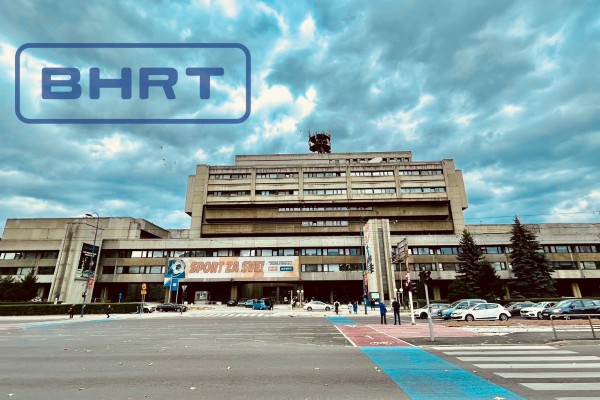Three Italian journalists have been handed prison sentences for defamation by a court in Chieti, Central Italy, in connection with a series of articles published in 2007 about an alleged investigation into the mayor of Sulmona, a nearby city, by the Financial Crime Investigation Unit (Guardia di Finanza), an Italian police force directly under the authority of the Minister of Economy and Finance.
On 10 May, the court sentenced Walter Nerone and Claudio Lattanzio, journalists with the local newspaper Il Centro, to one year in prison without parole. Luigi Vicinanza, former editor-in-chief of the same newspaper, now managing editor of 18 local newspapers from the editorial group, L’Espresso, received an eight-month prison sentence, also without parole.
The court also ordered that the journalists to pay 12,000 Euros in compensation to the plaintiff, in addition to the costs of the trial.
“The prison sentence handed down to the Italian journalists is disturbing, in particular in view of the chilling effect that such disproportionate punishments have on the practice of press freedom,“ said IPI Press Freedom Manager Anthony Mills. “We hope that the appeal court will choose to highlight the importance of protecting press freedom and, once again, we call on the Italian government to start a legal procedure to decriminalize defamation.“
In 2007, Il Centro published a series of articles reportedly stating that the then mayor of Sulmona, Franco La Civita, was being investigated in connection with bank accounts that La Civita allegedly owned abroad.
After La Civita filed a libel suit against Nerone, Lattanzio and Vicinanza, the court ruled that, having heard the Financial Crime Investigation Unit, it had found that the allegations brought by Il Centro were unfounded. The three journalists were therefore sentenced on criminal defamation charges.
The ruling has been strongly criticized by Italian journalists’ associations.
The Italian National Press Federation (Federazione Nazionale della Stampa Italiana – FNSI) expressed concern at the prison sentences and added that significant legal reforms to Italian legislation related to the crime of defamation are long due, according to a public statement by the organisation.
FNSI also noted that “too often defamation suits are used to prevent the flow of information of public interest”.
Italian law allows both criminal and civil proceedings for defamation, in breach of international and European standards in this field. The European Court of Human Rights (ECHR) in Strasburg has repeatedly noted that prison sentences for defamation are incompatible with Article 10 of the European Convention on Human Rights.
In the 1999 case of Dalban v. Romania, for example, the ECHR ruled that the conviction of the publisher of a magazine, who had reported on fraud committed by the chief executive of a state-owned agricultural company violated Article 10, because even though the articles “did not correspond to reality,” they concerned a matter of public interest and fulfilled an essential press function in a democratic society.
The regional Journalists’ Syndicate in Abruzzo expressed “the most complete solidarity with our colleagues Luigi Vicinanza, Walter Nerone e Claudio Lattanzio in the case that led to an unusually heavy sentence being handed down to them by the court in Chieti.”
Speaking to IPI over the telephone, a representative of the daily Il Centro stated that the newspaper will appeal the sentence.


